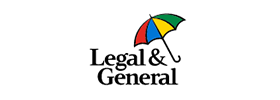Business insurance protects you from accidents, loss of use of business property, and other incidents that can make it a bad day for a business owner. When you’re shopping for commercial insurance, you have a lot of options in Dallas Texas. Some businesses may choose to go directly to an insurance company, but you don’t always get the best deal if you stick with the same company you’ve been with for other insurance policies.
A local agency gives you access to multiple commercial insurance carriers, providing you with benefits such as cost comparisons and a lack of personal time invested in finding out exactly how much each policy costs. The independent agent also has experience in dealing with a variety of commercial insurance policies, so they can advise you on whether you need additional insurance, riders you may be interested in, and other products.
A local agency also works directly with you, instead of working for an insurance company specifically. This means that you have an advocate on your side, instead of dealing with an insurance company. If you don’t like the terms that a specific company gives you, the local agency can find you a comparable option.
When you run your own business, you need to make the most efficient use of your time as possible. When you have an independent agent doing all of the comparison work for you, as well as knowing exactly which companies provide the business insurance you need, you save a lot of time and may save money on top of it.






















